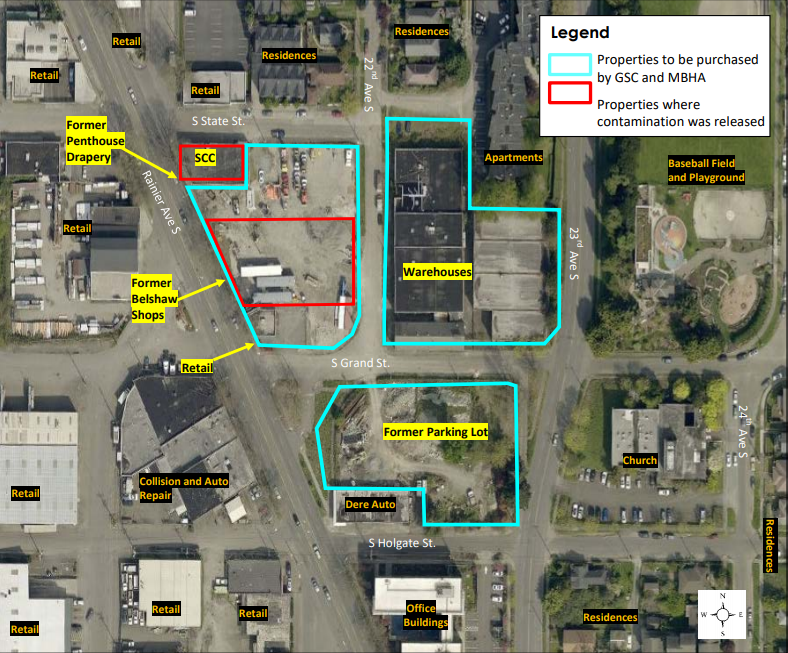Developers planning to revitalize property in Seattle’s Rainier Valley with affordable and market-rate housing have agreed to study soil and groundwater contamination left by former businesses.
Legal agreements between the Washington Department of Ecology and the developers require the developers to study the contamination, evaluate cleanup alternatives and develop a cleanup plan prior to development.
Ecology is seeking public comment on two proposed legal agreements negotiated with Grand Street Commons, LLC and the non-profit Mount Baker Housing Association.
The legal agreements allow the partnership to investigate the contamination while preparing to redevelop the property. The project at Rainier Avenue South and South Grand Street would be a few blocks from the Judkins Park light rail station now under construction.
Earlier environmental studies detected two areas with petroleum product and solvent contamination that affect the proposed development:
- One is a former manufacturing site inside the proposed project boundaries.
- The other is next door, but its contamination extends into the proposed project. Its current and former owners are conducting an independent cleanup under Ecology’s Voluntary Cleanup Program.
Ecology will consider public comments before finalizing the agreements and a public participation plan, which outlines how the community will be kept informed about the cleanup process. Once these agreements are finalized, Grand Street Commons and Mount Baker Housing Association will purchase the properties and begin the work.
The agreements and public participation plan are available at:
- Ecology’s website.
- Seattle Public Library, Beacon Hill Branch, 2821 Beacon Ave. S.
- Ecology’s Northwest Regional Office, 3190 160th Ave. SE, Bellevue. By appointment: 435-649-7090 or sally.perkins@ecy.wa.gov
Ecology is accepting comments through May 19. Please send comments to Ching-Pi Wang, site manager, at:
- Ching-pi.wang@ecy.wa.gov
- Department of Ecology, 3190 160th Ave. SE, Bellevue WA 98008
The agreements are part of the cleanup process outlined under the state Model Toxics Control Act.


